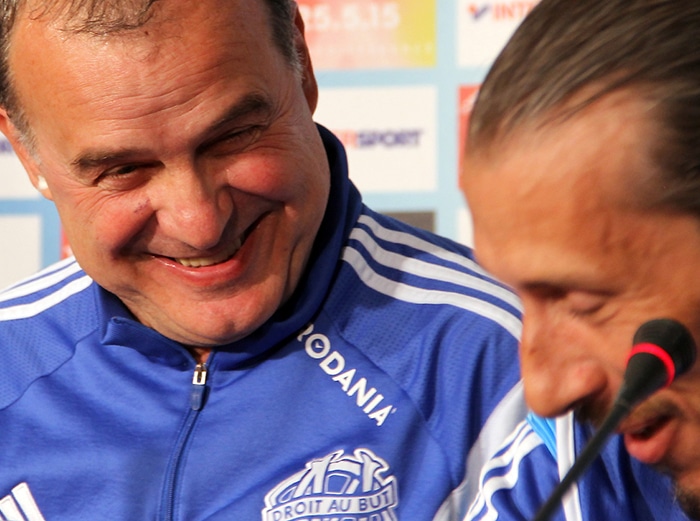How can you become a sports interpreter? Below are some truly valuable tips for a career as an interpreter in the sports industry.
If you have been following the sports news recently, given the surprise resignation of Marcelo Bielsa, the Marseille’s coach, you may be wondering what happened to his French-Spanish interpreter, Fabrice Olszewski. The shock of his gross mistranslations and poor interpretation at the press conference next to “El Loco” all go to show that offering interpretation services it not about improvisation… So, we are going to give you a few tips for an interpreting career in the sports world.
1. Understanding Sports
To be an interpreter, it is not enough to master several languages, as you also need a near-perfect knowledge of the environment in which you have to operate. Apart from handling the technical jargon professionally, you should also be naturally curious about everything, such as the latest news and gossip, so that you can tailor your speech to fit any situation.
In a big game, whether in the locker room or on the bench, you have to make sure you translate the right words at the right time: reproducing the coach’s instructions precisely or transmitting the questions of the journalists correctly and ensuring they have material for their articles.
2. Adapting to Suit the Speaker and their Audience
The role of the interpreter is to translate the speaker’s words, which means mirroring their personality and how they express themselves so that you reproduce the essence of their message with the same degree of intensity. Interpreting Jose Mourinho is not the same as interpreting Arsene Wenger.
This is not about repeating a speech word for word, as the interpreter often needs to take notes while the speaker is talking. Whether in a booth with headphones or on television, the interpreter must simultaneously translate and faithfully reproduce the text into the language of the viewer.
3. On the Move
While translators are on the whole quite sedentary, because all you do is move from your office to the coffee machine, and thence to the balcony to smoke a cigarette, the sports interpreter is constantly on the move.
They have to follow the coach as he moves around, travel with the team to their games away, and basically, be moving around all the time. For this reason, it’s important to keep fit and make sure you get enough sleep.
4. Knowing how to Diversify
If one day the coach decides to drop everything and leave, the interpreter will probably be left high and dry too, so it’s important to be prepared and have more than one string to your bow. If only from a financial standpoint, linguists with less common languages tend to have fewer problems, so it’s an advantage to master several languages, especially when the team is multilingual. For instance, a French-German interpreter will find it easier to recycle themselves than a French-English interpreter.
Given the widespread use of new technologies, interpreters are continually being pressed to broaden their skills and offer, for example, language classes for new arrivals, or interpret foreign media reports, translate sports contracts, press releases and so on.
5. Discretion is Vital
If you know how to sell your strengths, a sports interpreter that does their job should also know when to be discreet. In this discipline, which combines linguistic, technical and human skills, the aim is to go as unnoticed as possible. Generally, the interpreter works in the shadows, but you should always stay near the team and be alert to what’s going on, as well as being able to step aside and stick to your role, especially in press conferences.
A good translation can make a huge difference in a game, therefore, the role of the interpreter is crucial.
Discover our interpreting agency.



